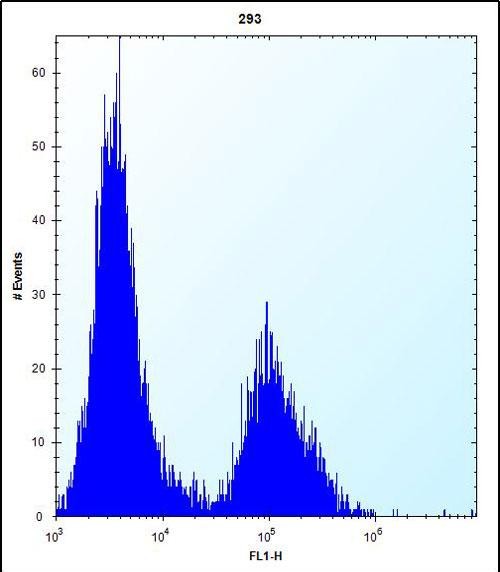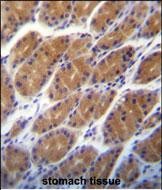The CLDN2 (C-term Y195) antibody specifically targets the C-terminal region of Claudin-2 (CLDN2), a member of the claudin family of tight junction proteins. Claudins are critical for forming and maintaining epithelial and endothelial barriers by regulating paracellular permeability. CLDN2. encoded by the *CLDN2* gene, is a tetraspanin membrane protein predominantly expressed in leaky epithelia, such as the kidney, liver, and gastrointestinal tract. It facilitates selective ion transport, particularly for monovalent cations, and is implicated in maintaining tissue homeostasis. The Y195 residue in its C-terminal cytoplasmic domain is a phosphorylation site, which may modulate CLDN2 function, including its interaction with cytoskeletal proteins or signaling molecules. Dysregulation of CLDN2 is associated with pathologies like inflammatory bowel disease (IBD), cancer metastasis, and electrolyte imbalance. The CLDN2 (Y195) antibody is widely used in research to investigate post-translational modifications (e.g., phosphorylation) and CLDN2's role in cellular processes, such as tight junction dynamics, epithelial-mesenchymal transition (EMT), and disease mechanisms. It is validated in techniques like Western blotting, immunofluorescence, and immunohistochemistry, aiding studies on tissue-specific expression and molecular pathways involving CLDN2. This antibody is crucial for elucidating how CLDN2 phosphorylation impacts barrier function and disease progression.


